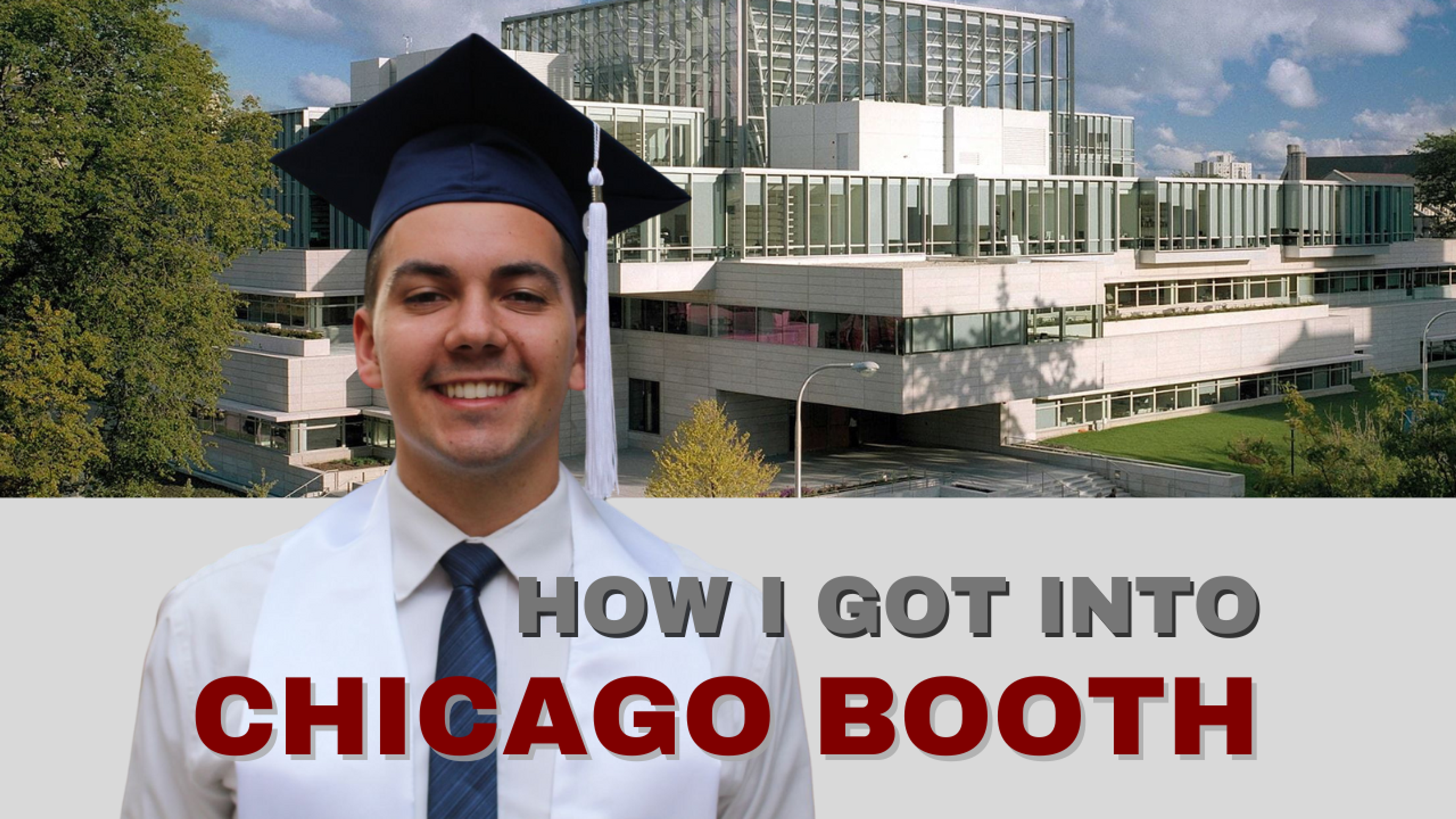Wharton Deferred MBA Program: Overview, Deadlines, & How to Get In
An overview of Wharton's deferred enrollment MBA program, including who Wharton is looking for, how hard it is to get in, application details, and more, from an expert Wharton MBA coach.

By Becky S.
150+ M7 & T15 Admits | Former Adcom Fellow | Expert w/ 15+ YOE
Posted June 13, 2025

Table of Contents
If you are in your final year in an undergraduate or advanced degree program and are thinking about a deferred MBA, you’ve likely run into the wide variety of programs available and may feel lost in the magnitude of options. Knowing where you want to go, and how to get there, can be an intimidating and tiring process. Read this guide to learn more about the University of Pennsylvania’s deferred enrollment MBA program.
I am an MBA admissions consultant and career coach with 15+ years of experience helping candidates gain admission to top business schools. I have successfully helped 120+ MBA applicants navigate the applications, tell their stories, and get admitted to the best programs in the world, including Wharton.
Let's dig into the the Wharton Moelis DMBA program. We'll cover what it is, who should apply, what they're looking for, what the application includes, and everything else you should know if you're considering applying to DMBA programs.
For other deferred programs, check out: Top 10 Deferred MBA Programs in the US—and How to Get In
What is Advance Access?
The Moelis Advance Access Program is the deferred MBA enrollment program at the University of Pennsylvania Wharton School. It provides an opportunity for students to go through the application process as college seniors and obtain a guaranteed seat in the MBA Program. It was launched in 2019 by Ken and Julie Moelis because they understood that the standardized track of MBA admissions could act as a barrier to students eager to make their impact on the world.
For two to four years, accepted students are encouraged to pursue less traditional full-time work experiences, such as joining a non-profit or start-up, or starting a business. Moelis Advanced Access provides an avenue for those students to take the risks they otherwise wouldn’t have if they were trying to put together the “perfect” MBA application.
Why Should I Apply?
Wharton consistently ranks as one of the top MBA programs worldwide, renowned for its finance, entrepreneurship, and technology programs. Applying through the Moelis Program provides a rare opportunity to secure a place at Wharton early in your career while gaining real-world experience without the stress of future MBA applications. This security allows students to take professional risks, whether in a startup environment, corporate leadership role, or public service.
One of the most distinguishable aspects of the Moelis Program is what happens during the deferment period. After acceptance, Moelis Fellows have access to a web-based and mobile-friendly platform where they are able to engage with Wharton, have access to Wharton resources and connect with alumni. Within that platform, there is also an online community limited to just the Wharton Moelis Advance Access Program where fellows can interact and support one another.
Here's what Wharton has to say on its site to answer this question:
The first years of full-time work include a range of exciting and challenging opportunities, experiences, and decisions. Whether you are a student who wants to explore your dream career, pursue a non-traditional path, launch a business, or join a start-up, we know that you have long-term goals of changing careers or industries. You already know that an MBA will strengthen your skills and provide you with knowledge that you might not find in your first job. Deferred MBA programs offer the opportunity to secure a guaranteed seat at a top MBA program two or more years down the road so that you can pursue these early years with increased confidence and risk-tolerance.
Expert Tip: Generally, if you think you may end up at business school at some point in your career, then I recommend applying to at least a couple of deferred MBA programs. Because you're still in college during the application, it's pretty low-risk (not to mention cheaper with waived application fees) with a major potential upside. If you do get in, you get several years to pursue whatever you want with the safety net of an excellent program waiting for you. If you don't get in, you can always apply later and it actually looks good because you're signaling to the program that you care enough about attending to apply twice. Most college seniors also have more time to take the GMAT/GRE and commit to the application than full-time employees do so if you're on the fence, consider applying. I can also help you decide whether it's the right path for you.
Read our full Wharton guide for an in-depth dive into the MBA program: The Wharton School—MBA Program and Application Overview.
Who is Moelis Looking For?
Wharton’s deferred MBA Program is looking for students “who see themselves being the leaders of organizations, innovating within industries, or creating their own companies sometime in the future,” from all disciplines and educational backgrounds. In other words, they're looking for:
- High-potential, ambitious students
- Future leaders and/or entrepreneurs
- Intelligence
- A track record of success and performance
- A promising career trajectory
They also want applicants who have done well academically in college, which doesn’t necessarily mean the highest GPA (though you will still need a competitive one). Rather, someone who has learned a lot and is already seeking to apply that knowledge and skill in the real world.
In addition, the MBA admissions office is looking for a symbiotic relationship with its students. It is equally as interested in how Wharton will benefit its students, as to how its students will benefit Wharton. This is reflected in the two essay questions which ask how the program will help you achieve your goals, as well as how you plan to make meaningful contributions to the Wharton community.
How Hard Is It To Get In?
Wharton doesn't publish statistics specifically for its deferred class but who it's letting into its traditional class can provide an idea of what makes a competitive candidate. Here are the details from its most recent class profile:
- Applications: 7,322
- Enrolled Class: 866
- Acceptance Rate: ~11-15%
- Note: The deferred MBA program will be more competitive than this because there are fewer seats available, but don't let that deter you!
- Demographics
- Women: 47%
- International: 31%
- Countries Represented: 65
- LGBTQ+: 10%
- First-Generation: 11%
- Military: 6%
- Average Work Experience: 5 Years
- Top Pre-MBA Industries
- Consulting (28%)
- PE/VC (15%)
- Nonprofit/Government (11%)
- Technology (10%)
- Investment Banking (9%)
- Average GPA: 3.7
- Test Scores
- Average GMAT: 732
- Average GRE: 163 (Quant); 162 (Verbal)

Application Overview
The application to the Moelis Advance Access Program is very similar to the general Wharton MBA application; however, deferred admission applicants are only evaluated relative to peers also applying for the Moelis Program.
Wharton Deferred MBA Deadlines
| Component | Deadline |
|---|---|
| Application | April 23, 2025 |
| Interview Invitations | May 29, 2025 |
| Interview Dates | June 2-13, 2025 |
| Decisions | July 1, 2025 |
| Deposit | August 1, 2025 |
Wharton Deferred MBA Application
There is a reduced application fee of $100, that may be waived depending on military or financial status. In addition to the fee, you will need:
- Unofficial copy of college transcript(s) with final year courses listed
- Self-reported GMAT or GRE exam scores (both tests administered at a test center or online/at-home are acceptable)
- Current resume with all internships, part-time positions, and future full-time position listed
- Two letters of recommendation from any of the following: college faculty, supervisor from an internship or employment, campus or community leader, advisor, or coach
- Two essays (same essays as general MBA applicants)
- Virtual Team-Based Discussion and one-on-one interview with a member of the Wharton MBA Admissions Office
After acceptance, admitted students are asked to pay an initial $1,000 deposit by the enrollment deadline to secure their space in the Moelis Fellows cohort. A final $1,000 deposit is due in the year immediately before matriculating into the Wharton MBA. The entire $2,000 deposits are applied to first-year tuition and fees at Wharton.
How to Get Into the Wharton Deferred MBA Program
Show evidence of long-term leadership ambition, not just short-term success.
The Wharton Moelis Program isn’t just looking for academic excellence or prestigious internships. It’s looking for future leaders — those who have a long-term vision for their impact. You don’t need to have launched a startup or led a nonprofit (though those are great), but you do need to show signs that you're on a trajectory to lead, innovate, or create value in a significant way.
Use your essays and resume to connect the dots between what you’ve already done and the direction you're headed. Explain the why behind your decisions, not just the what. Why did you pursue certain internships or leadership roles? What did you learn? What did it reveal about the kind of leader you want to become? Wharton is trying to admit candidates they believe will grow into people who influence industries, economies, and communities, not just land good jobs after graduation.
Align your goals with Wharton’s strengths (and don’t be generic).
Your goals essay isn’t just a place to list impressive aspirations: it’s a chance to prove you’ve done your homework. Wharton is known for its strengths in finance, entrepreneurship, analytics, and leadership development, but that doesn’t mean you should name-drop programs without context.
Instead, clearly articulate how Wharton’s unique resources — like the McNulty Leadership Program, Venture Initiation Program, or Business Economics & Public Policy faculty — map directly to your goals. Show that you understand what differentiates Wharton from peer programs and why Wharton specifically is the best fit for you. Deferred applicants who stand out often demonstrate not just ambition, but intentionality, or a clear sense of purpose backed by research and reflection.
Use the deferred format to your advantage
Wharton’s admissions team knows you don’t have five years of work experience; what they are evaluating is your potential to make the most of the 2–4 year deferment period. The best applicants communicate not just what they’ve done, but how they plan to use the time between undergrad and matriculation to grow in ways that will enrich the MBA classroom later.
Be specific. Are you joining a fintech startup? Working in public policy? Launching a venture? Show how that experience will not only prepare you for Wharton, but also contribute to the community once you’re there. Admissions officers want to admit students who will return to campus with fresh insights, maturity, and momentum.
Read these articles next:
- The Wharton School MBA: Acceptance Rate, Deadlines, Cost, Requirements, & Program Overview
- How I Got Into Wharton
- How to Stand Out as a Deferred MBA Applicant—From a GSB/HBS Admit
- The Deferred MBA Process and Top Programs: An Expert Guide
Becky S. is an expert MBA admissions consultant and career coach with over 15 years of experience helping candidates get into top programs like HBS, Stanford GSB, Wharton, MIT Sloan, and more.
A Wharton MBA herself, Becky offers personalized, strategic guidance across the entire admissions and recruiting journey — from crafting a standout application to landing your dream internship or job. Her coaching methodology is highly customized to each applicant’s strengths and goals. She specializes in application strategy, interview preparation, and career transitions, ensuring every client presents a compelling narrative that resonates with admissions committees. Book a free intro call with Becky and take the next step toward getting into the Moelis DMBA program.

Written by Becky
5.0
(31)
Hi! I am Becky Song - an expert admissions consultant and professional career coach with over 15 years of experience supporting students and candidates through their admissions and career development journeys. I currently serve as the Executive Director of Ivy Journey LLC (Professional Admissions & Career Consulting - https://www.theivyjourney.com/). I hold an MBA degree from The Wharton School of the University of Pennsylvania, specializing in Entrepreneurship & Innovation and Finance, and a BA from Vanderbilt University, where I was a recipient of the prestigious full-tuition Chancellor’s Scholarship. Over the past decade, I have successfully mentored 250+ college and MBA applicants, empowering them to achieve their full academic potential by gaining admission to their dream programs. I provide personalized and comprehensive guidance to help my students navigate the complex college admissions process with confidence and success. For college admissions, my students have earned spots at many of the top institutions in the US, such as Harvard, Columbia, MIT, Stanford, UPenn, UC Berkeley, JHU, Duke, Vanderbilt, CMU, NYU, etc. For MBA admissions, my clients have earned spots at many of the top programs in the US, such as HBS, Stanford GSB, Wharton, MIT Sloan, Columbia, Kellogg and Booth. I believe every candidate has a unique and compelling story to tell, and I am dedicated to helping them craft an engaging narrative and build a personal brand that resonates with admissions committees and differentiates them from other applicants. As a recruiting coach and career consultant, I have coached 100+ candidates, helping them boost their chances of successfully secure management consulting and strategy related roles at their dream companies in a competitive job market. Whether you're a student looking for an internship, a fresh graduate from college or graduate school looking for your first job, a MBA candidate looking to make a career transition or a seasoned professional who's looking for their next big move, you've come to the right place! Personally, I have made many successful transitions in my career, from actuary to non-profit leader, strategy consultant to entrepreneur. I have a diverse background in various industries, including consulting, government, healthcare and education. As an experienced management consultant and manager who has led many teams at various top consulting firms, I have served a wide range of federal government and Fortune 500 clients in the healthcare, retail, CPG, and technology industries. Whether you need guidance on application strategy, resume review, or interview preparation, I'm here to help you achieve your academic and professional dreams. I am excited to learn more about you and look forward to supporting you every step of the way. Reach out today to jump start your new journey!
Becky has helped clients get into organizations like:
The Wharton School (UPenn)
Columbia Business School
Stanford Graduate School of Business
Vanderbilt University
Kellogg School of Management (Northwestern)












